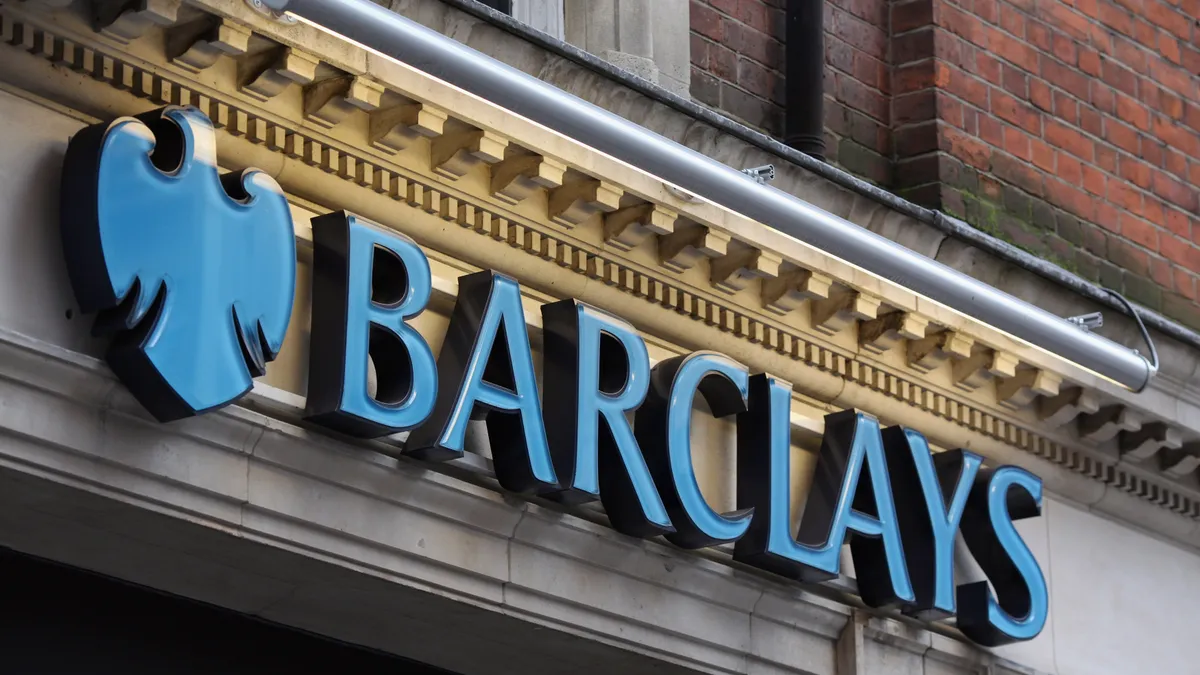UPDATE: April 19, 2021: Barclays abandoned its role as lead underwriter in a municipal bond sale meant to finance the construction of two new prisons in Alabama connected to CoreCivic, Bloomberg reported Monday. Activists and investors said the deal was “in direct conflict” with the bank’s 2019 pledge to stop financing private-prison companies.
“We have advised our client that we are no longer participating in the transaction intended to provide financing for correctional facilities in the State of Alabama,” a spokesman for the bank said Monday in an emailed statement to the wire service. “While our objective was to enable the State to improve its facilities, we recognize that this is a complex and important issue. In light of the feedback that we have heard, we will continue to review our policies.”
KeyBanc Capital Markets, a unit of Cleveland-based KeyBank, also said it was resigning from the transaction, according to Bloomberg.
Barclays’s role in the sale spurred two advocacy groups — the American Sustainable Business Council (ASBC) and Social Venture Circle — to terminate Barclays’s membership and refund its dues, the organizations said Thursday.
“We abhor the hypocrisy represented here and renounce the continued investment in the broken, unjust system of incarceration of this country,” MaryAnne Howland, the ASBC’s board chair, said in a statement, in which she was joined by several other advocates.
“Together we championed Barclays and other banks when they committed to stop financing private prisons and, together, we must also hold them accountable,” Justice Capital founder Christina Hollenback said.
CoreCivic spokeswoman Amanda Gilchrist told Alabama Political Reporter on Monday the company is “proceeding with efforts to help deliver desperately needed, modern corrections infrastructure to replace dilapidated, aging facilities that originally were designed with one purpose in mind — to warehouse individuals, not rehabilitate returning citizens.” Alabama is facing a humanitarian crisis, she added.
Barclays had cut — by about $200 million — the total par amount on the publicly offered portion of the bonds, Bloomberg reported Friday. Pricing, originally set for Thursday, was delayed until this week. There was strong demand, however, for the private portion, a source told the wire service.
David Levine, the ASBC’s president, said Monday he invites Barclays to “chart a responsible and beneficial path forward for investing and rebuilding our communities, and our economy,” according to Bloomberg.
-----
Barclays’s decision to underwrite a bond offering by prison operator CoreCivic is "in direct conflict" with a pledge the bank made two years ago, about 30 activists and investors wrote in a letter to the U.K.-based lender, the Financial Times reported Thursday.
In its own statement, the bank appeared to distinguish between lending and underwriting.
"At the direction of the State of Alabama, Barclays has worked alongside the state’s representatives and advisors to finance the procurement of two new correction facilities that will be leased and operated by the Alabama Department of Corrections for the entire term of the financing," the bank told Bloomberg this month in an emailed statement. "The commitment we made in 2019 not to finance private prison companies remains in place."
The letter’s 30 writers said the bond sale leaves Barclays open to reputational risk, adding that banks and investors should "refuse to purchase securities ... whose purpose is to perpetuate mass incarceration."
"You’ve already taken the stance, the right stance, that private prisons and profiting from a legacy of slavery is bad," Renee Morgan, a social justice strategist with asset manager Adasina Social Capital, told the Financial Times. "But then you’re finding this odd loophole in which to give a platform to a company to continue to do business."
CoreCivic, too, argued semantics, saying the prisons would be managed and operated by the state, not the company, and thus, wouldn’t be private.
"Frankly, we believe it is reckless and irresponsible that activists who claim to represent the interests of incarcerated people are in effect advocating for outdated facilities, less rehabilitation space, and potentially dangerous conditions for correctional staff and inmates alike," CoreCivic said, according to the Financial Times.
The $634 million in bonds, for which Barclays is serving as the lead underwriter, won’t be considered CoreCivic debt because they’re being issued for a limited liability company called Government Real Estate Solutions of Alabama Holdings. However, that LLC is 100%-owned by CoreCivic, which is listed as a sponsor in the prospectus, Bloomberg reported. Another $215.6 million in debt may also be sold through a private placement, documents showed.
The Justice Department sued Alabama in December, saying it fails to protect male prisoners from prisoner-on-prisoner violence, sexual abuse and unsanitary conditions. Alabama Attorney General Steve Marshall told Bloomberg the lawsuit doesn’t take into account the "immense progress" the state has made in improving its prisons.
"Leasing and operating new, modern correctional facilities without raising taxes or incurring debt is without question the most fiscally responsible decision for our state," Alabama Gov. Kay Ivey (R) said in February regarding the new-prison deal.
Several banks, including JPMorgan Chase, Bank of America, Wells Fargo and SunTrust, vowed in 2019 to stop financing private-prison operators as narratives proliferated surrounding the detention of immigrants near the southern border of the U.S.






















